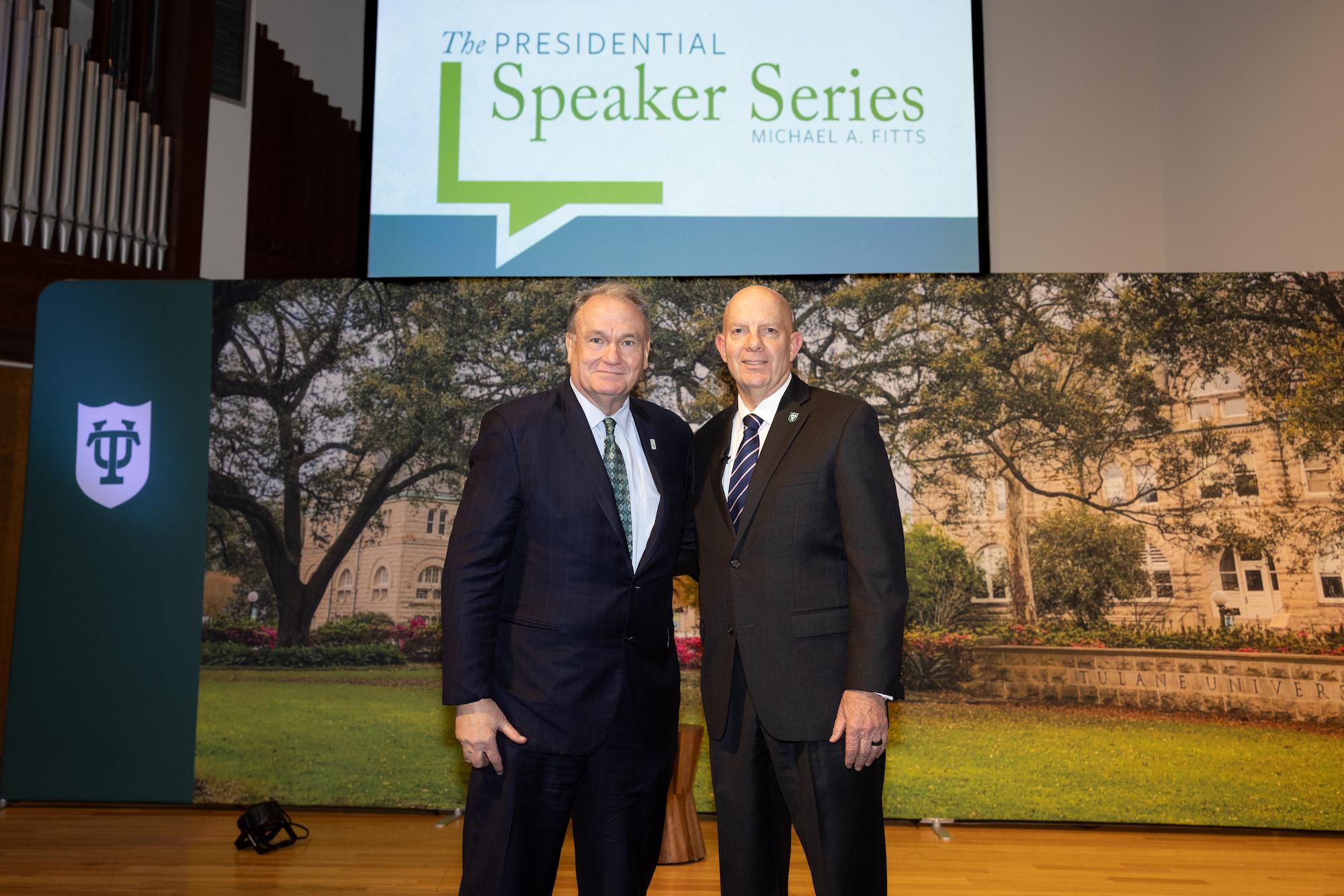From Tulane to top general: David Berger’s path to leadership
When Gen. David Berger was exploring colleges as a teenager in the mid-1970s, he initially wanted to attend his father’s alma mater. But Tulane University was also on his list, and when he stepped foot on the uptown campus, he knew he had found a home.
The future commandant of the U.S. Marine Corps fell in love with Tulane — the culture, the academics, the Naval ROTC program, and the diversity and welcoming nature of the people, both on campus and in New Orleans.
“It was awesome,” said Berger, a 1981 engineering graduate, speaking last week as part of the Presidential Speaker Series at Rogers Memorial Chapel. “The deans and instructors were great. Engineering was hard but fair. The school and the environment gave me a level of discipline that prepared me for the next four decades.”
In conversation with Tulane President Michael A. Fitts on Thursday, Berger recalled a college experience that also included Mardi Gras, the New Orleans Jazz & Heritage Festival, competitive club lacrosse and a part-time job with a Cajun carpentry company.
Berger believes his life would have turned out much differently had he not attended Tulane. “You’re thrown into a melting pot from day one,” he said. “If you can succeed in that environment, you can succeed anywhere.”
And succeed he did. In his introduction, Fitts described Berger as a “legendary leader,” rising to the highest ranks of the U.S. Marine Corps over four decades of service. During those 40-plus years, he led a battalion during “Operation Secure Tomorrow” in Haiti and a regimental combat team during “Operation Iraqi Freedom” in Iraq.
As a general officer, he led multiple forces in Afghanistan during “Operation Enduring Freedom” and he held crucial staff and joint assignments as a policy planner, chief of staff, director of operation and deputy commandant for combat development. He later earned multiple advanced degrees, including a Master of International Public Policy from Johns Hopkins University.
“It’s no wonder that former Defense Secretary Lloyd Austin called him a ‘warrior-scholar,’” Fitts said.
In 2019, Berger was nominated and confirmed as the 38th Commandant of the Marine Corps, a role he used to launch a massive restructuring known as Force Design 2030. “It was the most dramatic transformation of the Marine Corps in decades,” Fitts said.
Berger introduced Force Design 2030, also known as FD2030, in 2020 as a way to transform the Marine Corps into a more agile, efficient and technologically advanced force to meet the combat challenges of the future.
Berger said today’s young Marines have embraced the changes. “They are very comfortable in that environment,” he said. “They’re going to find applications for stuff we never dreamed of. Their absorption rate for change is much better than mine. Change is normal for them.”
Berger said his time at Tulane taught him invaluable lessons in making difficult decisions, and he wouldn't trade that experience for anything.
“The school and the environment gave me more than I thought when I left here,” he said. “The academic environment, the engineering school, the ROTC, gave me a level of discipline I would need. They gave me a way of attacking problems mentally, which paid off for me for four decades.”

